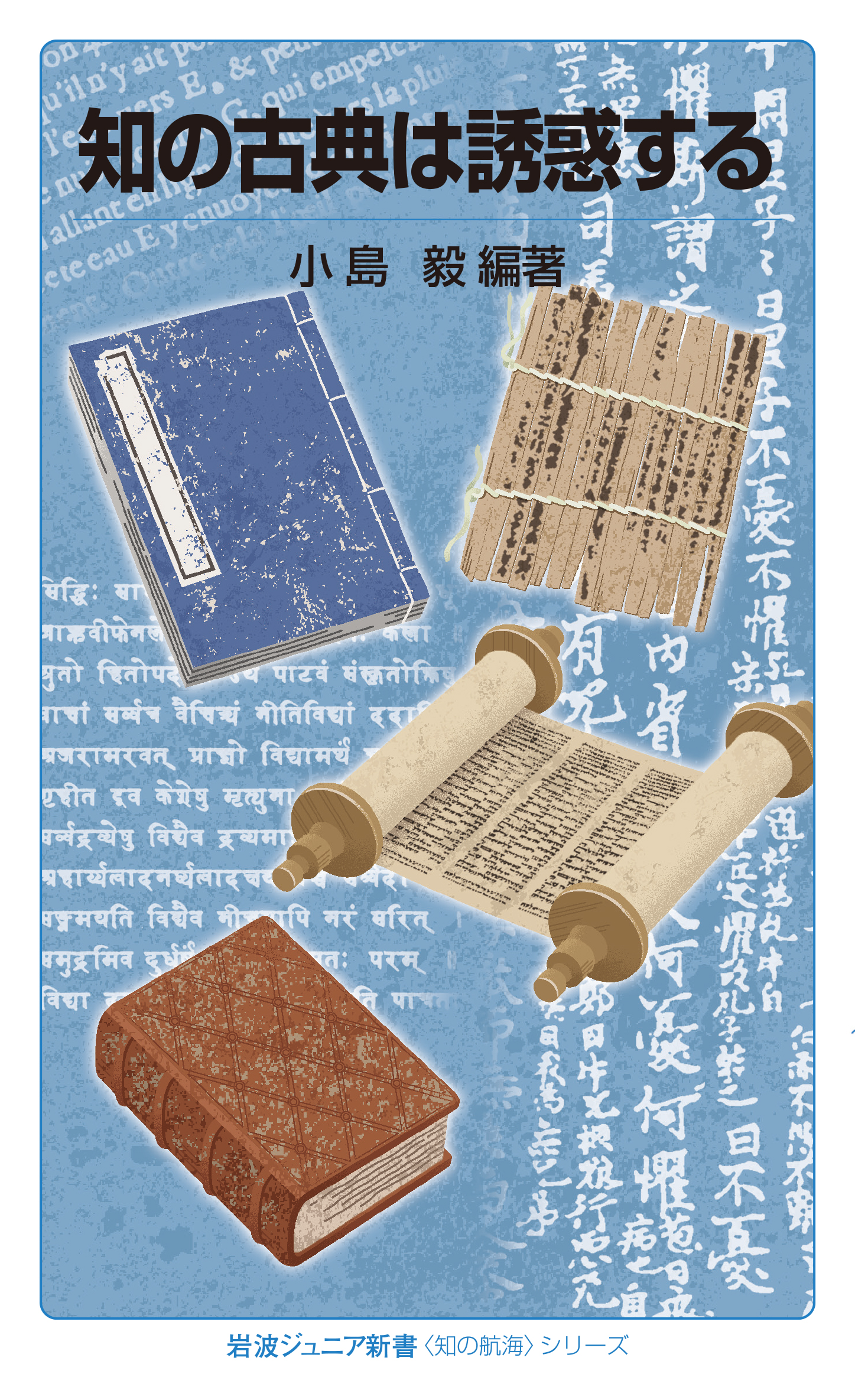
Title
Iwanami Junior Shinsho Voyage of Knowledge Series Chi no Koten wa Yūwaku Suru (The Charm of the Classics)
Size
190 pages, paperback
Language
Japanese
Released
June 20, 2018
ISBN
9784005008759
Published by
Iwanami Shoten
Book Info
See Book Availability at Library
Japanese Page
This book is the result of the research group of Classics and the Future Society, a subcommittee of the Science Council of Japan’s Philosophy Division. It was written for readers in high school and university bachelor’s degree programs. Classical studies is not taught as a single subject in high school education; it is separated into kobun (classical Japanese literature) and kanbun (Chinese classics ) as part of Japanese-language studies, ethics as a part of social studies, and the like. On the other hand, the general education courses of the past have been abolished at universities as well, and classical studies are being forgotten in favor of “applied courses” and “clinical courses.” Considering this situation, this book carefully selects and discusses representative “classics” from many eras and regions. Specialists in each field explain the essence of these classics in an easy-to-understand manner while still maintaining a high scholarly level. Next, I will list the names of these classical texts and the experts writing about them. They are the Kojiki (Tsuyoshi Kojima) Analects (Kenjiro Tsuchida), Tao Te Ching (Nobuo Horiike), Dhammapada (Mamiko Okada [Shinsui]), Hitopadesha (Chizuko Yoshimizu), Torah (Izaya Teshima), Gorgias (Yasunori Kasai), and Discourse on the Method (Takako Tanigawa). Among these works, I will introduce Gorgias (page 127–151 of the book, “Plato and Professions”), which was written by myself (Kasai).
The first part is “1 Encountering the Classics, then Meeting Them Again.” As stated previously, classical texts in Japan are mostly read during high school education, or as a type of intellectual diversion after retirement. However, the situation is quite different in overseas countries (and particularly for Western classical studies, my field of study), where the classics are studied as a single discipline in undergraduate curricula. Students who previously learned about the classics are active in all sorts of fields of society (law, business, international relations, etc.). In other words, Japanese classical studies are dominated by those who professionally research and teach this as their field of expertise. Classical studies are isolated from the real world (the adversities of society).
In “2 Professions and Skills,” I first consider what professions existed in Greece at the time when Gorgias was written (5th to 4th century BCE). This is because the first question posed in Gorgias by the protagonist Socrates (Plato) is, “What is your profession?” Here, the profession discussed is that of “rhetorician,” a person whose skill (techne) is rhetoric. Socrates argues that rhetoric is not a sufficient skill (techne), saying that it is nothing more than “pandering” influenced by the preferences of the general public (demos). Instead, he names “justice” (dikaiosyne) as worthy of being called a “skill” (techne). However, Socrates does not specifically describe what this “justice” refers to.
In “3 Persuasion and Skills,” I point out that “persuasion” (peitho)—a keyword in rhetoric—has previously been translated as “settoku” in Japanese. Therefore, I state that this is a mistaken understanding of the true meaning of the Greek word, and suggest the need to analyze what meaning the Greek word has in various types of disputes and conflicts, including trials.
In “4 Conclusion,” I state that, although people generally say the Greeks did not establish laws or jurisprudence like the Romans, this is not necessarily true. Plato described legislation in great detail in the Laws, his masterwork from his later years. On the other hand, orators (exemplified by Demosthenes) left behind many works of forensic oratory describing justice as a practice, not as a theory. These are also classical texts, and they remain interesting to us in our modern age for their realistic and vivid depictions of law and judicial systems, as well as inheritance, finance, and international business.
(Written by KASAI Yasunori, Professor, Graduate School of Humanities and Sociology / 2021)



 Find a book
Find a book


 eBook
eBook